BNP faces the weight of history and expectations

There is currently a huge Awami League-shaped hole in Bangladesh's electoral politics, so BNP trying to dive headlong into it comes as no surprise. Since Sheikh Hasina's fall on August 5, BNP has had to navigate a delicate tightrope—balancing its ambition to return to power with the pressure to support popular demands for state reforms. The party doesn't want to risk the ire of the very students that ousted its arch-rival, potentially putting it in pole position to win the next election. But reforms take time, something it doesn't have plenty of after nearly two decades of wait. And the grassroots are getting impatient.
"Impatient" is perhaps an understatement for what has unfolded over the past month and a half. A more fitting description would be a chaotic transformation of a party getting used to having things its way. As BNP-affiliated leaders, activists, and professional groups scramble to fill the void left by Awami League, we are getting an early preview of the making of another regime—and it's nothing short of disturbing.
For example, since August 5, at least 14 BNP members have lost their lives, eight of them in factional clashes. The most recent murder occurred on Friday in Chattogram's Changaon area, where a Jatiyatabadi Jubo Dal activist was fatally stabbed during a clash between rival factions. On the same day, heavy clashes between two BNP-linked groups in Chandpur left at least 30 people injured. On Sunday, a similar clash in Narayanganj left at least 12 injured, followed by another in Kushtia two days later, injuring 10 more. These violent power struggles, often revolving around the control of extortion rackets, have become disturbingly common. In that, the BNP grassroots seem to be re-enacting scenes from Awami League's time in power which, too, was plagued by factional infighting, with over 150 of its leaders and activists killed in mostly turf wars since the 2018 election.
Over the past weeks, reports have also emerged of BNP leaders and activists taking over slums, footpaths, transport hubs, extortion rackets across various markets and informal businesses, and even former Awami League offices. Meanwhile, in the civil service, there have been allegations against BNP-affiliated groups trying to influence promotions, placements, public contracts, etc.
Officially, the party is against such practices. Tarique Rahman, the acting chairman, recently warned that BNP will not tolerate any reckless actions by "misguided" individuals that could harm "the trust and love" it has earned through "years of struggle, sacrifice, and perseverance." He urged party members to "identify and resist" those tarnishing BNP's image, emphasising its commitment to not only expelling such individuals but also taking "legal action" against them.
These warnings coupled with occasional disciplinary measures, however, have proven insufficient to deter errant party supporters, which suggests two things: either those were not strict or convincing enough, or the party is not trying hard enough. Both scenarios are likely in an environment of patronage politics that has long been the mainstay of our political culture. This system of patronage begins at grassroots with the capture of extortion rackets or other undue benefits by political thugs, and culminates with systemic regulatory capture by vested interest groups, all of which serves as an incentive for them to keep working for a party. Barring exceptions, the prospect or promise of mutual gain largely governs the relationship between major parties and their supporters.
BNP, for all its pro-reform posturing in the aid of the interim government, has yet to demonstrate a real willingness to dismantle this corrupt system. While, to be fair, it has shown some signs of remaking itself as a party with a more open political ethos, the revolutionary times that we are living through demand much more.
Ironically, Awami League's ouster through a bloody uprising has stripped BNP of two key advantages that it could have used in an election campaign: anti-incumbency bias, and public sympathy for the repression it had endured. In an alternate reality where those factors still mattered, BNP could have expected Gen Z—with no lived memory of its 2001-06 rule—to support it unquestioningly, and older generations to accept it as the lesser of two evils. The problem is, the new generation has shown a political maturity beyond their years, and to win them over, BNP now must offer something genuinely new.
Ironically, Awami League's ouster through a bloody uprising has stripped BNP of two key advantages that it could have used in an election campaign: anti-incumbency bias, and public sympathy for the repression it had endured. In an alternate reality where those factors still mattered, BNP could have expected Gen Z—with no lived memory of its 2001-06 rule—to support it unquestioningly, and older generations to accept it as the lesser of two evils. The problem is, the new generation has shown a political maturity beyond their years, and to win them over, BNP now must offer something genuinely new.
So far, it has been giving mixed signals. On the one hand, it acknowledged that repeating Awami League's mistakes could lead to the same fate for itself, stressing the importance of understanding the shift in people's mind-sets. On the other hand, it continues to call for elections as soon as possible. Its rhetoric surrounding the student-led mass movement, trying to co-opt it as its own, and its suggestion that long-term reforms should be left to an elected government also reveal glaring contradictions. Perhaps the army chief's recent statement—in which he vowed to back the interim government "come what may" to possibly ensure elections within the next 18 months—will prompt BNP to reassess its approach. While expecting an election roadmap is not unreasonable, it must lift its sights beyond its ambition and bring the reform drive to its own doorsteps.
At 46, BNP is in need of renewal, and the sooner it realises this, the better. As the largest party in the country now, it has a responsibility not just to its leaders and activists but to the entire political landscape. To truly demonstrate that it remains in tune with the spirit of the mass uprising, BNP needs to lead by example and undertake the following initiatives.
First, it must help dismantle the patronage system by making it clear to party leaders and supporters that BNP politics will henceforth offer no undeserved benefits, and anyone using its name for such purposes will be met with swift punishment. Second, it should ask its loyalist groups within the civil service to stop influencing decisions, or risk being blacklisted. Third, it should establish a democratic, secular, and gender-inclusive party structure, and have a high-powered committee constantly check erosion of these values in party activities. Fourth, it should bring clarity on its finances by making the names of its donors public and conducting internal audits of assets held by party leaders. Fifth, it should control its grassroots leaders and activists, preventing infighting and any criminality through strict enforcement of disciplinary measures.
Sixth, it should comply with the Representation of the People Order (RPO) clause that prohibits political parties from having affiliated student or teacher organisations. Over the years, political parties, including BNP, have bypassed this law on mere technicalities, passing their student wings off as "brotherly" or "associate" organisations, thus enabling crimes and hegemonic practices that led not only to a deep distrust of student politics but also unimaginable sufferings.
There can be many other reforms that are necessary. What BNP can do to remake itself in line with the spirit of the mass uprising can be the topic of a discussion that the party should itself encourage for its own benefit.
Just before the January 7, 2024 election, I wrote an article titled "Can BNP survive the pre-election meltdown?" amid heavy crackdowns by Awami League. I guess the question now is, can BNP fulfil the post-uprising expectations? After all, if political parties do not break free from their long-entrenched monopolistic and authoritarian attitudes, changing the constitution and implementing other state reforms cannot prevent future regimes from turning dictatorial again. BNP has a historic responsibility in this regard.
Badiuzzaman Bay is an assistant editor at The Daily Star.
Views expressed in this article are the author's own.
Follow The Daily Star Opinion on Facebook for the latest opinions, commentaries and analyses by experts and professionals. To contribute your article or letter to The Daily Star Opinion, see our guidelines for submission.

 For all latest news, follow The Daily Star's Google News channel.
For all latest news, follow The Daily Star's Google News channel. 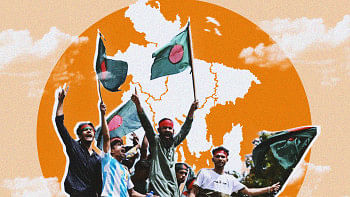
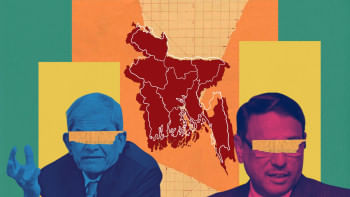
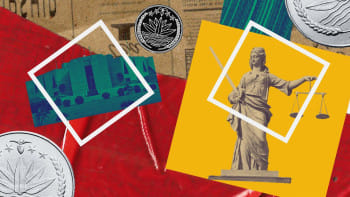

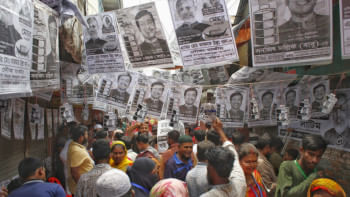



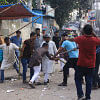





Comments